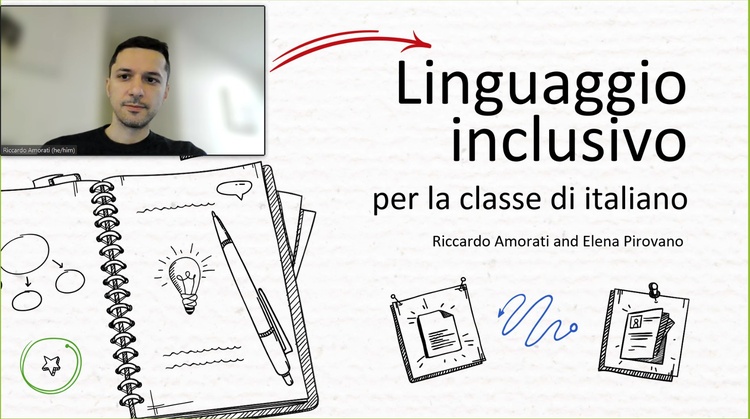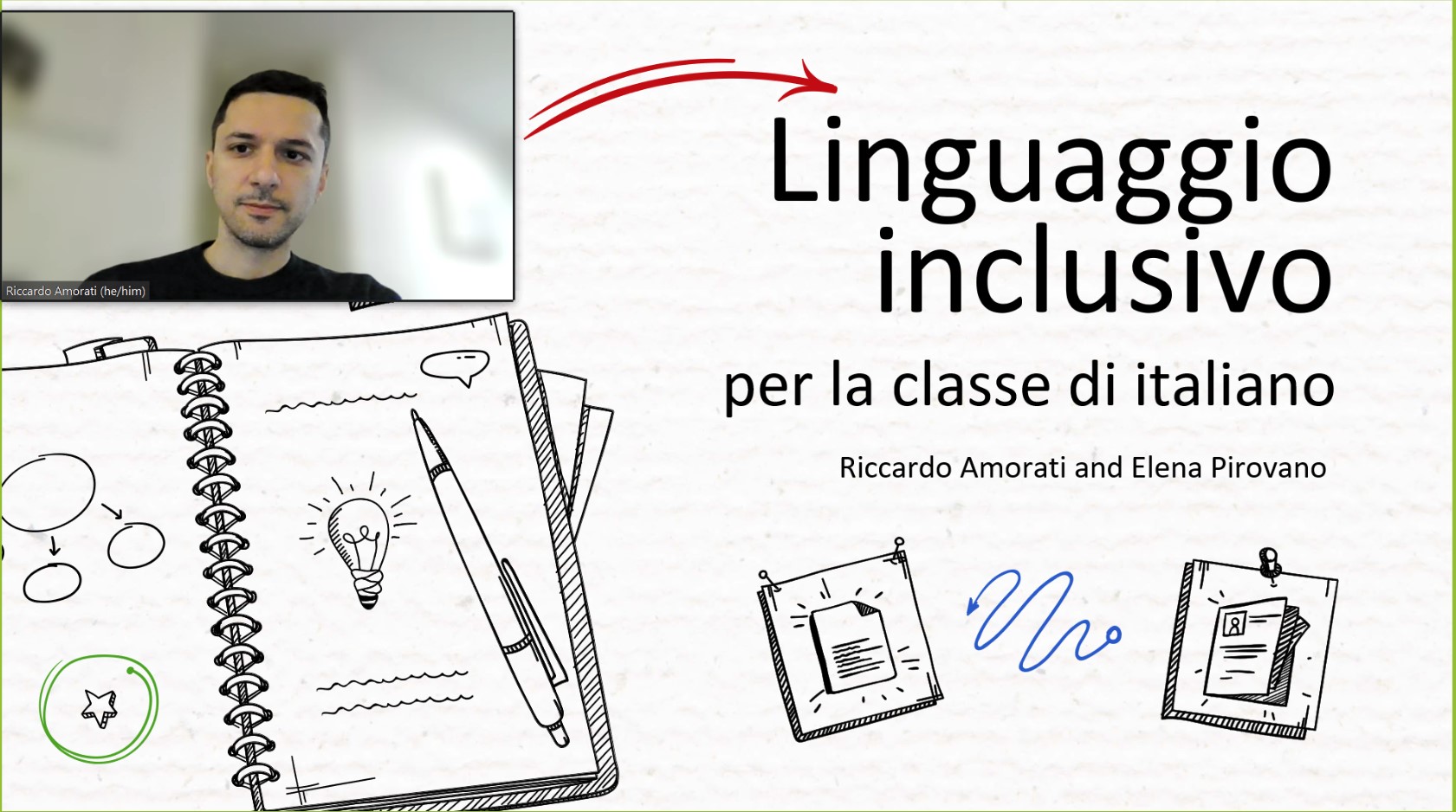MELBOURNE - The online seminar entitled Inclusive Language for the Italian Classroom, organised for members of the Victorian Association of Teachers of Italian (VATI) was held on September 5.
The seminar was held by Riccardo Amorati and Elena Pirovano, professors of Italian at The University of Melbourne.
The idea for the seminar, designed for both primary and secondary schools, arose from a request for more information from teachers who want to promote an inclusive language in their classrooms that makes each student feel valued.
“We conducted research and got confirmation that teachers were looking for tools to best support non-binary students. In particular, what language choices to make to give them the opportunity to express themselves in the way that best corresponds to their gender identity,” said Riccardo Amorati, explaining the genesis of the project.
“So, the idea arose to propose a meeting that would offer insights to teachers interested in implementing inclusive teaching in the classroom.”
Amorati emphasises that reflection on and possible implementation of inclusive language is relevant to the language syllabus and should not be done in addition to what is already being done in the classroom, but instead be integrated with it.
“Personally,” Amorati continued, “I propose some considerations on inclusive language in my courses.
“For example, information can already be given when explaining gender and the connection between nouns and adjectives, or for the feminine of professions. Right from the start it is possible, through small steps, to show students that we teachers are taking a stand and opening up the conversation.”
The webinar presented teachers with practical examples of inclusive language to be used in the classroom, but, as Amorati pointed out, “not because everyone has to use these formulas, but to highlight that there are language choices possible for students who want to draw on those forms”.
“These are not substantial changes but it’s a matter of attitude that teachers must have in order to create a more inclusive environment. It should be part of every teacher’s competence.”
Having an open conversation about inclusive language is important according to Amorati and Pirovano, because although it is not taught in a formal way, it’s ideal for teachers to have access to a set of strategies that can be used to meet the needs of pupils.
The virtual meeting provided a set of tools for teachers to draw upon, but in the future the two Melbourne University professors would also like to provide resources for the classroom, which for the moment is made difficult by the fact that many of the forms relating to inclusive language have not yet been standardised.
“We would like to be able to work with a group of teachers, meeting with them over time, to verify the usefulness of the strategies provided, to understand whether they are able to apply them in their teaching practice and what the greatest difficulties are in their implementation,” Amorati explained.
The professors would also like to establish a working relationship with the Department of Education in order to understand how inclusive language can be explicitly present within the curriculum and textbooks.












